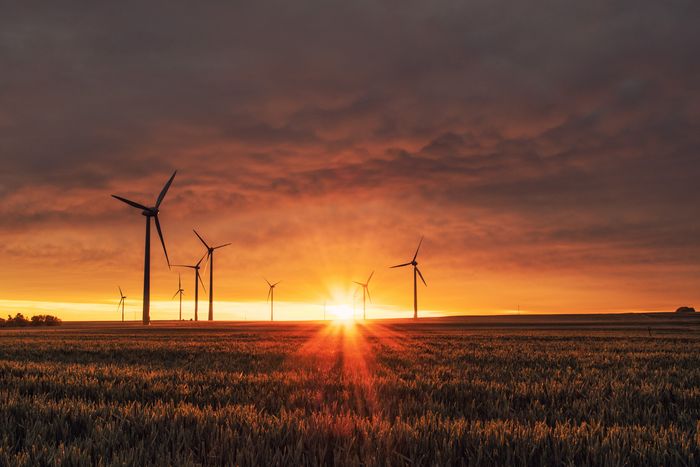The initiative Tourism Declares was launched in January 2020 – just when the COVID-19 pandemic started. Though the industry has suffered severely from the lockdown, a collective of over 200 travel businesses and organisations has already signed and declared a climate emergency. For Tourism Watch, Lea Thin has interviewed Kasia Morgan from the Tourism Declares outreach team, who is also Head of Sustainability and Community at Exodus Travels, a founding signatory.
Kasia, “Tourism Declares” has started just when the COVID-19 pandemic broke out. Why should tourism providers join the network now?
There is an urgent need to do something bold in response to the challenges that climate change poses for the tourism industry. That fact has only been compounded by the visibility of a pandemic that shut down everything. Declaring a climate emergency is a signal of how businesses think they will come out of this crisis. A network like Tourism Declares provides a great opportunity for businesses to learn how to become more sustainable and resilient. During the course of this year, we are developing a set of climate action blueprints for inspiration. All climate emergency plans every signatory has to compile, are visible for everyone on our website containing great ideas for climate action.
Can you give some examples of measures?
“Much Better Adventures” for instance has just released its plan containing carbon labelling. They have gone through a yearlong process of measuring all their carbon emissions across their portfolio and give a detailed breakdown of the carbon emissions associated with every single trip on their website. With this, they educate clients to understand the carbon impact of their travels and empower them to choose more sustainable trips. “Responsible Safari Company” in Malawi is charging all guests a 1.5 per cent payment for what they call an “ecosystem service fee” which goes to community conservation work. “Sustainable Travel International” is working with the Bureau of Tourism of Palau, which is about to become the world’s first carbon-neutral destination. The pacific island state contains several hundred islands and therefore is extremely vulnerable to climate change. This is why they attach great importance to protecting the Palauan ecosystem.
The Climate Emergency Plans are voluntary commitments. How is Tourism Declares monitoring the success of implementation?
In fact, the initiative was set up recognizing that the only way we are going to make real headways is to show ideas, learn together and develop a supportive environment rather than introducing a policing or penalty system. Thus, signing the declaration is less about a new obligation but more about support for building up a more sustainable business in an environment where we do feel accountable through each other to publish those plans and our progress even when we haven’t hit some of those goals.
The lion’s share of emissions still relies on the aviation sector. What can the tourism sector do to minimize the carbon footprint of transportation?
One strategy of my own company is to offer travelling by train instead of flying. This is a very concrete measure to help clients reduce their carbon footprint with their travels. Of course this only works within a certain distance. Thus, we have expanded our European portfolio quite substantially to make a third of our destinations accessible by train.
However, a destination like Palau cannot be travelled by train…
Sure, destinations only have little impact on how the aviation industry is reducing their emissions. What they can do is to provide the fundament for carbon storage – for example by preserving the coastal ecosystem with all its important carbon capture ability like Palau does. By conserving its biodiversity, destinations can at least reduce and build resilience against the impacts of climate change caused by aviation.
Tourism Declares promotes a responsible recovery after COVID-19. What have destinations learned from the pandemic so that they will not return to the same old business after the lockdown?
Much of the planning being undertaken to re-launch travel in a post-pandemic world goes hand in hand with sustainable tourism principles. “Visit Scotland”, for example, now promotes a greater geographical range of spots and seasonal visits to avoiding overtourism. This is good for local ecosystems but also in terms of reducing COVID-19 risk. Also destinations have learned they are not immune to events such as lockdowns. This can happen with the expected impacts of climate change, too. Thus, many businesses start to strengthen their resilience now. Like Thompson Okanagan Tourism Association in British Columbia. It has been publishing COVID-19 impact reports on the local tourism economy to create strategies for long-term resilience.
Will the industry come out of this pandemic being more sustainable or will the industry be out for the quick buck after the crisis?
I think it will be a mix of both, unfortunately. The development will be driven a lot by the consumer. Projections and research suggest that more immediately a lot of people will make their holiday decisions primarily based on just wanting to get away for an economic viable price. You know the pandemic has not only hit hard on the tourism industry but many of the industry‘s consumers have suffered financially, too. But then, following the initial demand, research has shown that the consumers’ mind-sets have changed for the long term. According to a Kearney research 48 per cent have responded the pandemic has made them more concerned about the environment. The Global Web Index suggests that half of the European travellers believe that it is now more important for them to reduce their carbon footprint and environmental impact when travelling as a result of their experience with COVID-19 . As a result, the travel sector will be further incentivised to meet the growing consumer demand for more sustainable travel.





